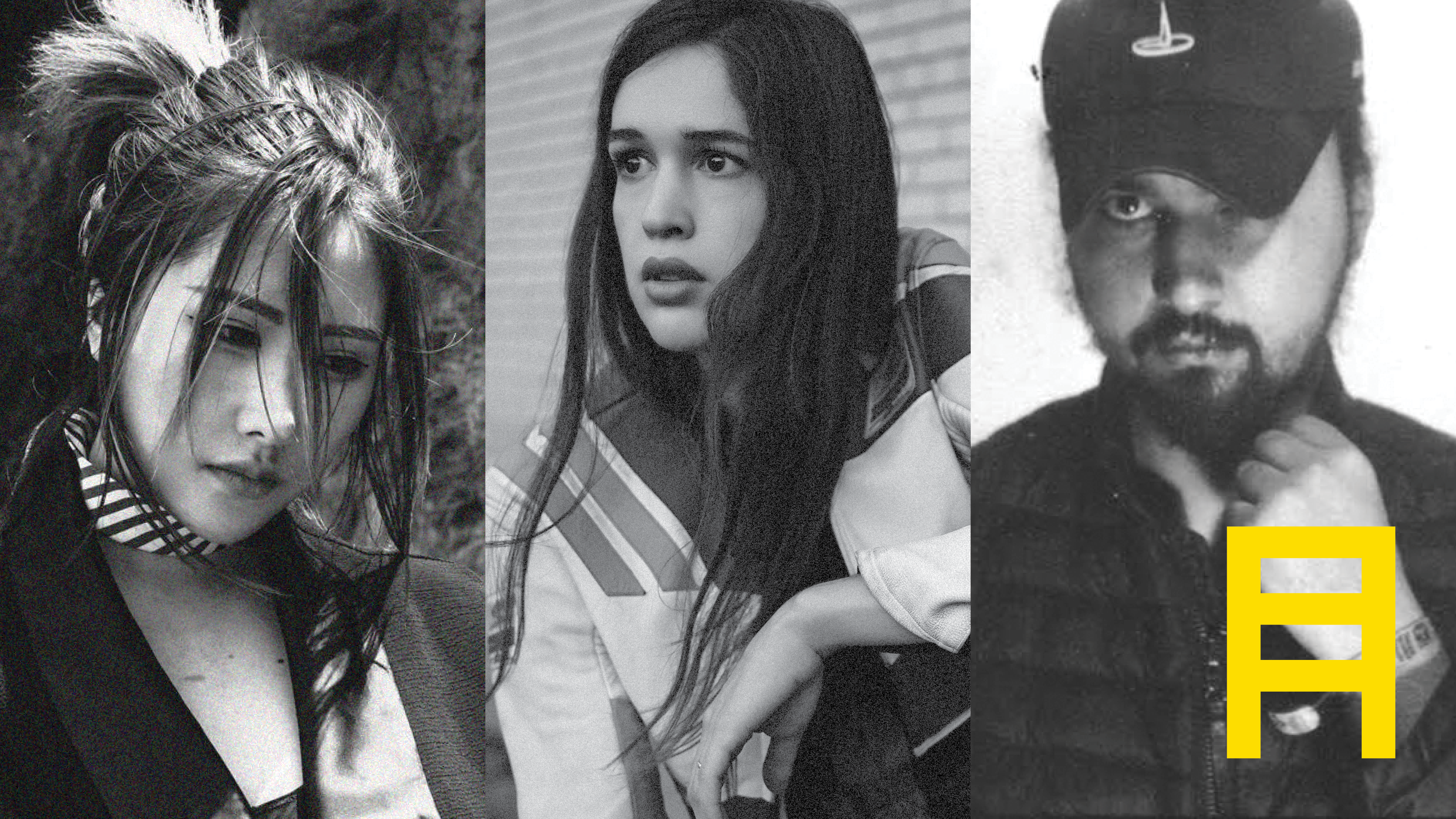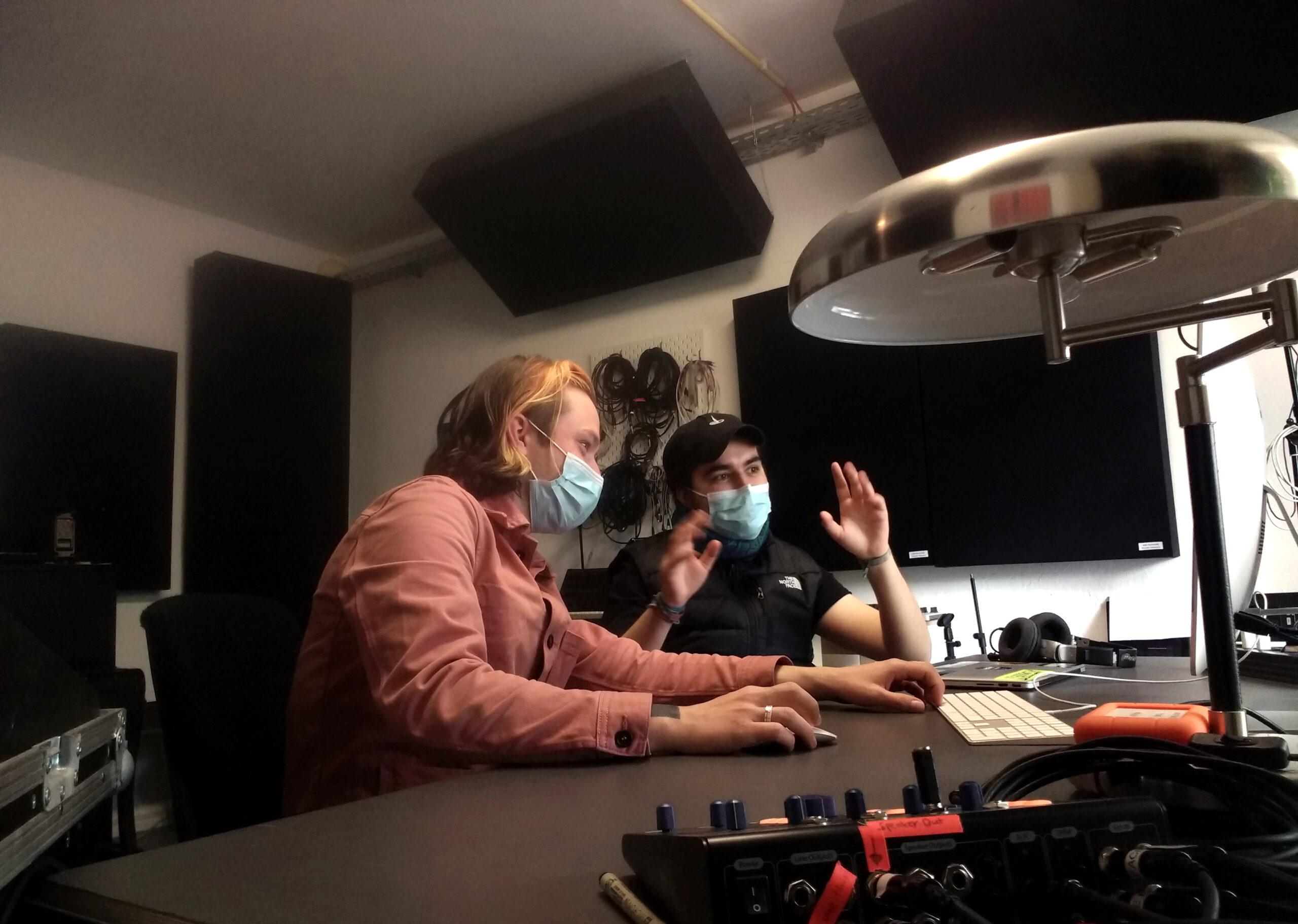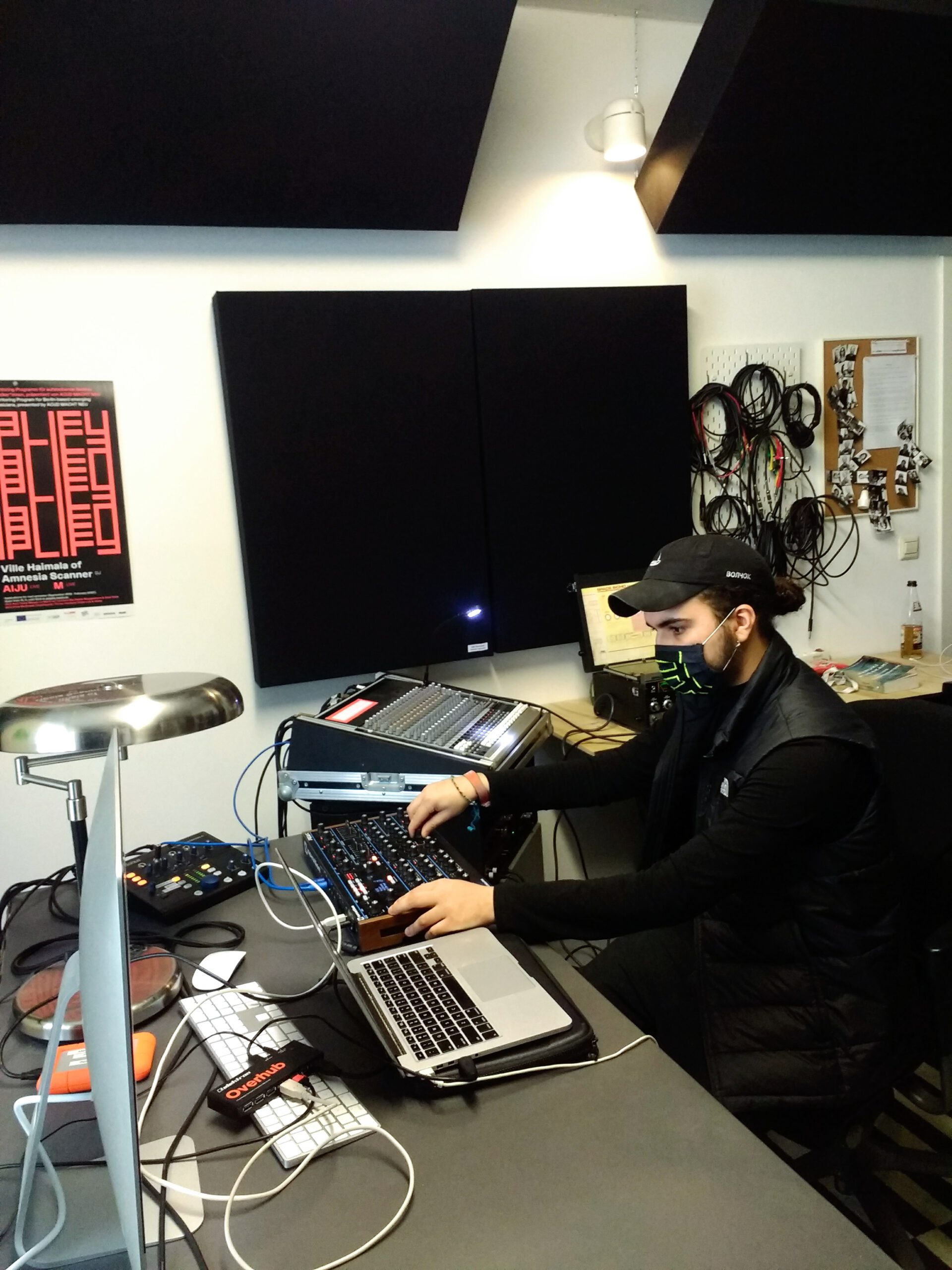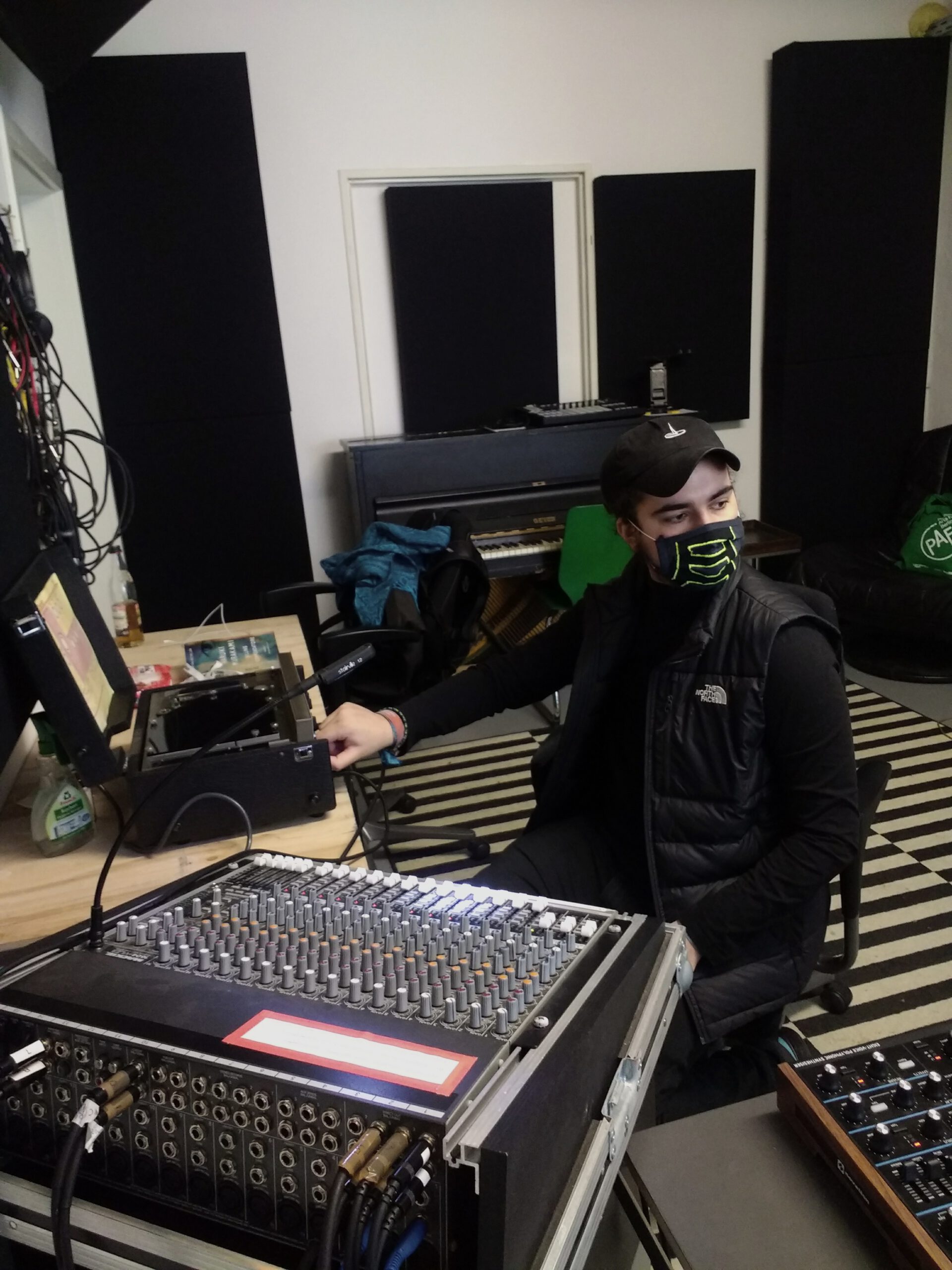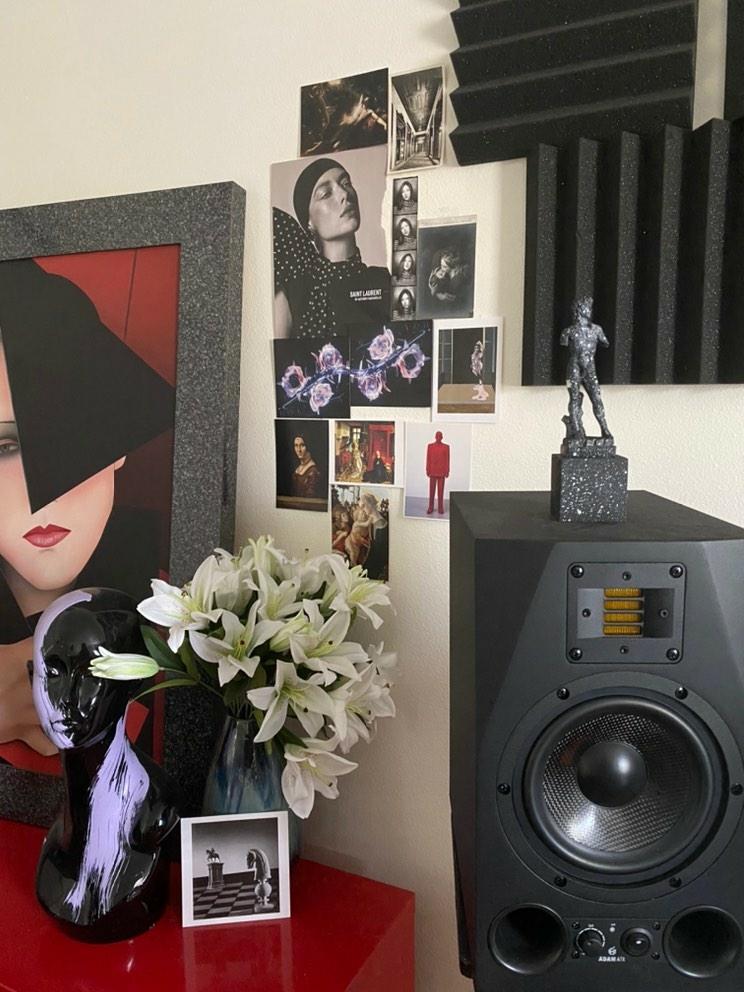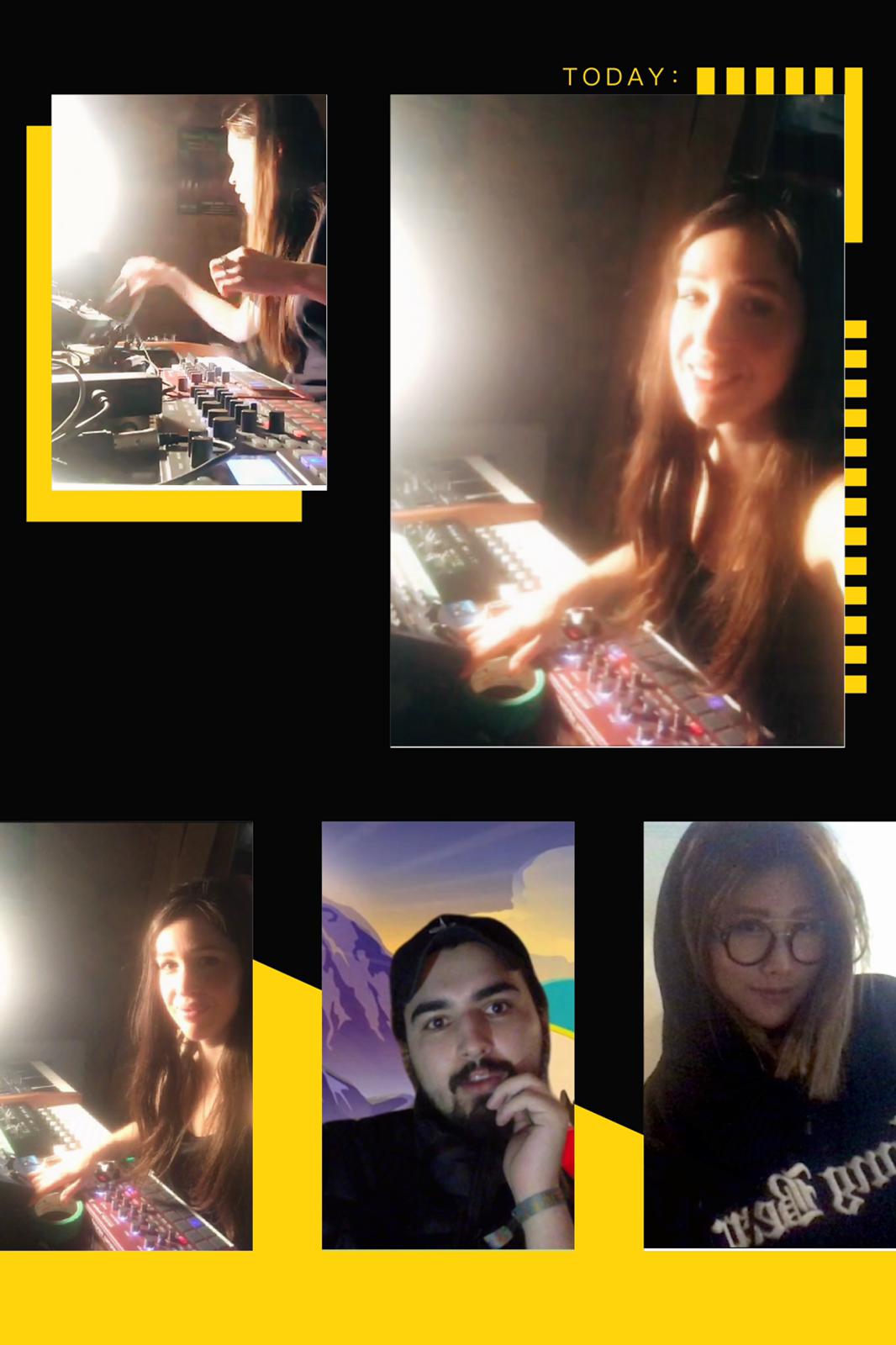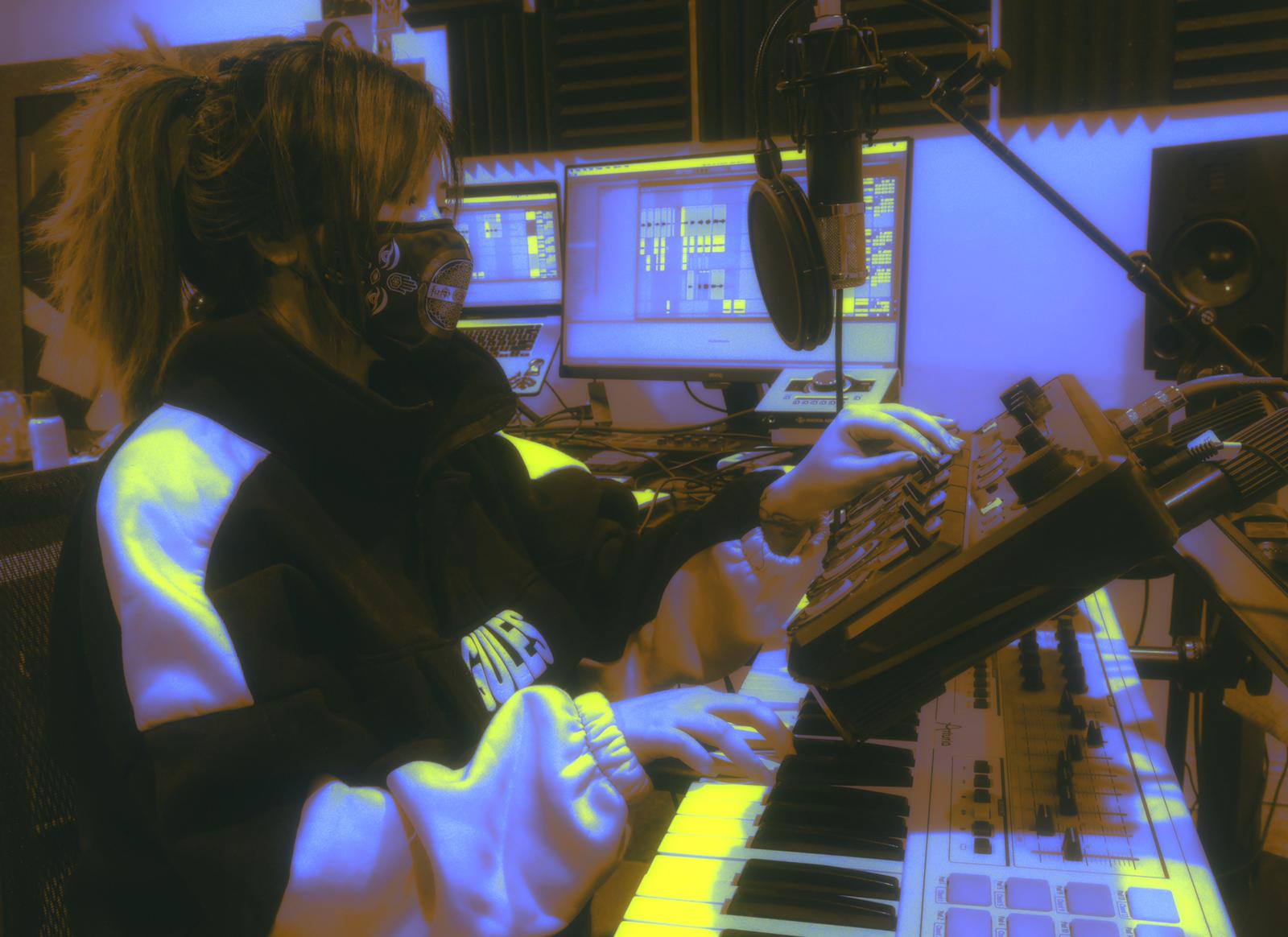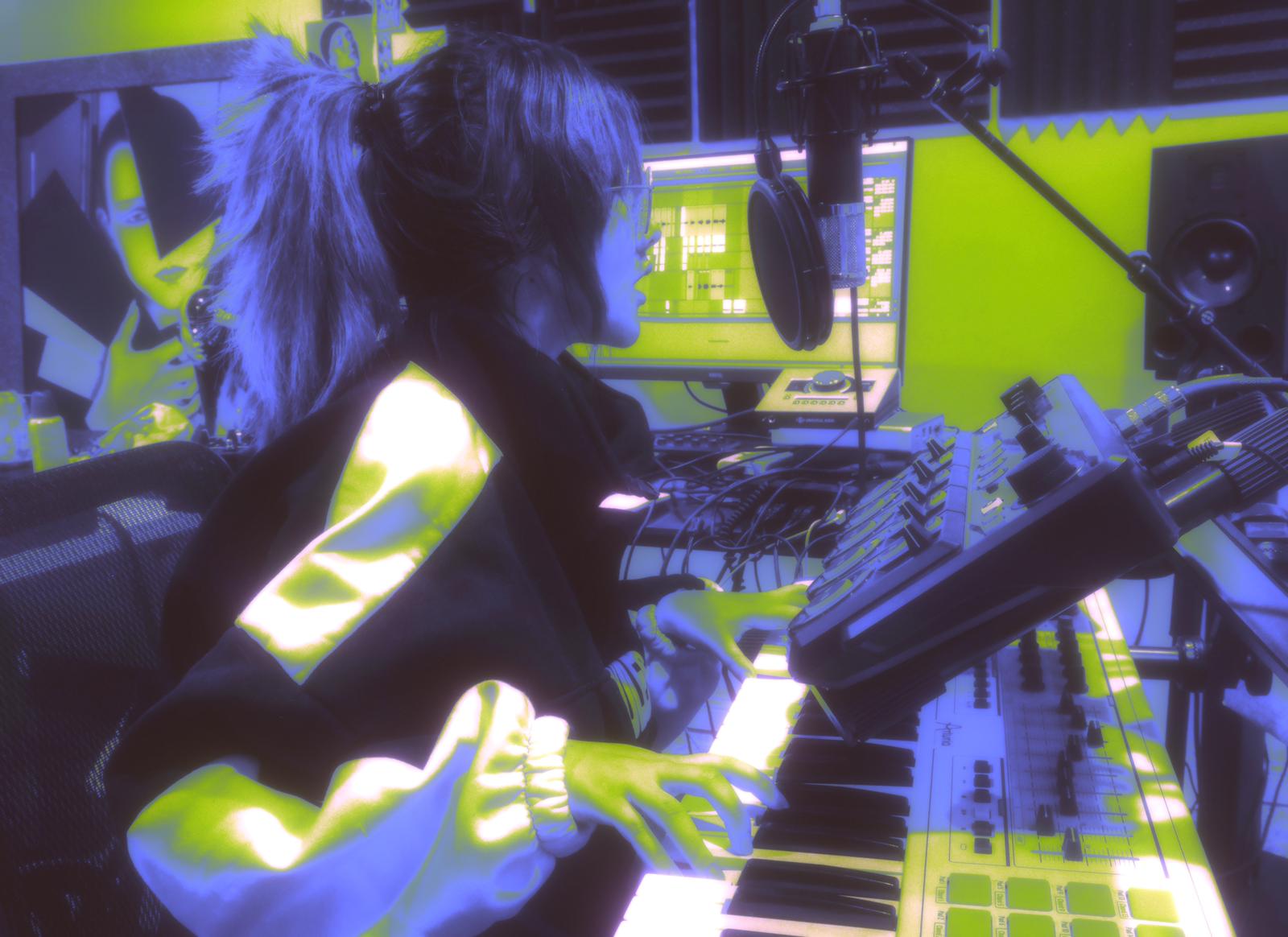Berlin
18
Marie Davidson
Kloxii
Jon Kronick
3 different cities and time zones for this May residency: Berlin, L.A & Montreal! Mentees Kloxii and Jon Kronick have spent a lot of time online with their mentor Marie Davidson about their music inspirations, her live set-up etc. A fruitful exchange as they both created two inspiring tracks, Kloxii with „Pale Blue 淡蓝“ and Jon Kronick with “Blood Of Venus”. Listen to it below and learn more about their month residecy.
JK: The vocals you recorded for your residency track “Pale Blue 淡蓝” really grabbed my attention, even though I don’t understand Chinese these vocals transmitted a sense of emotion to me. What aspects of your cultural heritage influence your creative output and how did this fusion of English and Chinese lyrics begin in your music?
KX: I actually started expressing my thoughts in my native language recently and realized it creates this new possibility to have more freedom to release the feeling I want and portrait my thoughts with more perspective and less words. It’s good to write in English, it’s a universal language and it does connect with people more easily. But I feel it’s more mysterious and even better when someone hears the lyrics and doesn’t understand them. It just gives them more space and imagination. My songwriting process it’s very intuitive, I usually start with abstract thoughts and vibes I want to feel and I don’t know how to express them in words so I start singing in weird sounds and then write in English and Chinese and mix it up. Sometimes I will write something that has a weird meaning, it doesn’t make sense and I try to make sense later when the lyrics start revealing themselves to me. Some chinese words can be very short but have deep and crazy meanings in one word. These chinese words are usually more poetic or from ancient proverbs and idioms. I just try to use my intuition to sense what feels good when mixing the two languages together. Growing up in China, a communist society, and then moving out to Los Angeles and Berlin made me see a lot of contrast on some of the limited thoughts as well as the good and dark times in the society I grew up in. I think this is the reason why my music usually sounds very melancholic.
KX: I was also really allured by your track for the residency, “Blood Of Venus” and how it invokes a sense of storytelling, how important of an aspect is it for you to engage in storytelling and narrative in your music? Can you elaborate on how these creative perspectives help develop your compositional process?
JK: Whenever I’m making music I like to think I’m “scoring” a story and develop my sound palette around this. For example I’m a big enthusiast of researching mythology and history and imagining a sort of soundtrack for these tales and the characters within them helps me create a perspective of how a track will evolve. I usually don’t start tracks with a set goal in mind but instead I just compose and sound design until there is a coherent idea, then listening back to this idea some aspect of it will trigger my senses into taking it in a certain direction and here is where the storytelling aspect takes place. I start utilizing distinct textures and timbres to create a space for your mind to dwell in while listening. Even if it is a completely dancefloor oriented techno banger I still want the song to make you feel like you are in a certain setting but for me as the creator that setting might be something completely different than the listener but the emotion transmitted will stay the same.
JK: You also have a type of storytelling throughout your music specially with the integration of your creations in other disciplines like fashion design, video & photography. How does your perspective in terms of visual arts affect the way you approach and visualize sound?
KX: With my studies in fashion design and photography, it really taught me how to detach my perspective from my creation. As a visual artist you have to be able to see things from outside yourself. See things from many different perspectives in order to engage and judge what is good for the audience, customer and user. Fashion industry is also a very customer service based business, by working in that for years it really helps me learn more on the psychology side of making a business. It was very draining. One thing I learned is to be able to keep the balance between knowing when to give and when to keep boundaries to protect your creativity. When not to be conscious when you create and when to let your work out to the world and let it find its own meaning and evolve into a new meaning. Feeling attached and not attached at the same time. It’s like the cycle of dying and rebirth at the same time. You are dying but in the process of you dying you are actually doing the work to be reborn again.
KX: You mentioned your fascination with mythological and historical studies in your previous answer. Can you tell me more about how these interests influence your creative outlet and why do they entice you?
JK: Since I can remember I’ve been enchanted by these ancient stories whether it’s epic tales or more humble personal anecdotes the feeling of being momentarily transported into a different place and time has always been a source of inspiration and creativity for me. This circles back to the concept of storytelling, all of these stories even though they are written down and recorded into paper they were once transmitted through oral tradition usually accompanied by music be it for ritualistic purposes or to preserve cultural traditions. These moments brought people together to understand the past and the world around them through different stories and even today an integral part of music is creating this sense of human connection. We go to events and share records not only to appreciate the music but to connect with people through a shared feeling created by the narrative in the music. History is not only about kings and battles it’s about the lives of people like you and me and how we share the human experience be it in the past, present or future and this is something I like exploring in my music.
JK: I can see that in a certain way you and I share a similar point of view about certain philosophical concepts. You talked about the cycle of life and rebirth which reminded me of Hindu philosophy. I find their ideas of ever-repeating rhythmic cycles apply to music, do you incorporate these ideas in your music? And if so how?
KX: We are surrounded by sound almost every moment of our lives. Sound is constantly in a cycle of rebirth and decay. But we ignore most of it because it is not necessary for our survival. We only perceive what our brains want us to see or hear. We filter the world around us and how we think is affected by this fixed filter as we are trapped in a cage made by ourselves. I’ve come to understand the necessity to unlearn certain habits and how to listen to the sound I subconsciously choose to ignore. Opening up my fixed filter and becoming more perceptive of my surroundings. Being part of this journey with everything on earth, knowing the importance of working with nature as a human being. I want this process of death and rebirth to be an evolving and growing concept within my creation. For it to just keep evolving with it and dying with it. Not just a song but a continuous song, a song within a song.
KX: Even though I like how our questions evolve into deep inquiring about inspiration and philosophy lets switch. I know you are also really interested in new technologies within music and beyond, how do you see the music and technology industries moving forwards together into the future? What new concepts do you think will grow from this and how will artists and audiences experience music in the years to come?
JK: We live in a world where technology is outdated at an incredibly fast pace and whether we like it or not music and technology go hand in hand. For a few years already technologies like AR and VR have been growing incredibly fast and we can already see it in different levels of the music industry from experimental avant-garde performances that are showcasing groundbreaking aspects of these technologies to mainstream artists having concerts in videogames like Minecraft & Fortnite and other virtual environments. Beyond performances, music composition and production is ever-changing as well with a seemingly non-stop influx of new hardware synths and software coming out. I think what’s exciting is not all of these cool new pieces of gear but how artists will react to this oversaturated market, personally I believe it will have more to do with how we integrate new technologies with our human senses. AI may be able to generate all sort of musical technicalities but it cannot recreate human emotion and interpersonal connections, doesn’t matter how enticing the chord progression or drum beat it made is, These are tools and artists are and will continue curating the output of these tools into humanly composed music in deeper ways from here on.
